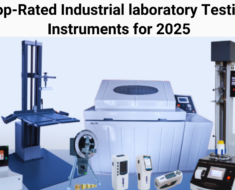The manufacturing industry experienced tremendous improvements because of CNC (Computer Numerical Control) machining technology through its precise performances and repeated capability, together with better efficiency. Achieving precision in CNC machining operations needs superior quality equipment for dimension assessment.
The tools allow for the verification of exact specifications in machined components, thus minimizing errors and maintaining consistent outcomes. Proper measuring tools become essential for CNC machining since advanced machines without suitable measurement devices might result in manufacturing defects and longer wait times.
The Importance of Dimensional Accuracy in CNC Machining
Companies operating in the aerospace, automotive, medical, and electronics industries use CNC machining because precision remains non-optional. Components need to fulfill exact dimensional standards, which may reach measurements under one millionth of a meter.
Small abnormalities throughout the manufacturing process can produce functional breakdowns, which negatively affect product safety alongside operational performance. The dimensional measurement equipment becomes essential for achieving satisfactory specifications in all parts.
Types of Dimensional Measurement Equipment for CNC Machining
The production of precise results in CNC machining requires different types of dimensional measurement equipment. The most commonly used devices employed in CNC machining operations include the following items:
Coordinate Measuring Machines (CMMs)
CMM machines are precision instruments used to measure the geometry of machined parts. By using probes, mechanical, optical, laser, or scanning, Coordinate Measuring Machines (CMM) provide accurate measurements of dimensions, angles, and complex shapes. These machines help ensure parts meet tight tolerances and design specifications, inspecting features such as length, width, height, radii, and surface quality.
CMMs improve efficiency by automating data collection and comparison with CAD models, reducing human error and ensuring consistency. They are crucial in industries like aerospace, automotive, and medical device manufacturing, where precision is essential for product safety and functionality.
Vision Measuring Systems
Vision Measuring Systems are non-contact inspection tools that use cameras and advanced image processing to measure and analyze components. These systems are ideal for inspecting delicate or flexible parts that could be deformed by physical contact. By capturing high-resolution images, Vision Measuring Systems accurately assess dimensions, shapes, and features without causing any damage to the components.
These systems are commonly used in industries where precision is crucial, such as electronics, medical devices, and semiconductor manufacturing. The non-contact nature ensures that even sensitive materials maintain their integrity while still meeting strict quality standards.
Micrometers and Calipers
Machining operators depend on micrometers and calipers as their main manual instruments for taking measurements. These instruments maintain high value in fast production-stage checks.
Height Gauges and Depth Gauges
Vertical dimensions and depths are accurately measured with these specific equipment tools. Machined surfaces must be checked for uniformity using these devices.
Profile Projectors
Profile Projectors are optical devices used to assess the profiles of machined parts by projecting them onto a screen for comparison with standardized reference templates. These systems allow users to visually inspect and measure the shape, contours, and dimensions of parts with high precision. By magnifying the part’s profile, Profile Projectors help ensure that components meet design specifications and quality standards. They are widely used in industries like automotive, aerospace, and precision engineering for efficient and accurate inspections.
Surface Roughness Testers
CNC machines must perform surface finish measurements in addition to dimensional precision. Surface roughness testers are essential instruments to verify that parts deliver the needed texture with a smooth surface finish.
Benefits of Using Dimensional Measurement Tools
Ensures Product Quality
Using dimensional measurement equipment ensures all produced parts meet specified requirements, thus decreasing product errors and resulting in higher-quality output.
Reduces Material Waste
Measuring tools help avoid expensive material loss because they detect mistakes before the manufacturing stage has progressed. The organization achieves improved resource efficiency, which results in reduced production expenses.
Enhances Process Efficiency
The precision of measurements enables CNC machines to reach peak operational performance, which in turn decreases production durations and increases operational effectiveness.
Improves Customer Satisfaction
The delivery of accurate, high-quality parts creates trust and satisfaction among customers, which produces stronger business partnerships and multiple returning orders.
Supports Compliance with Industry Standards
Aerospace and medical manufacturing sectors, along with others, need industries to follow tight dimension standards. Quality control measurement tools support businesses to fulfill regulatory needs as well as maintain industry certifications.
Challenges in Dimensional Measurement for CNC Machining
The use of measuring tools for machining brings various advantages, although they present certain challenges to the user.
- Calibration and Maintenance: The accuracy of measurements requires continual calibration checks.
- Skill Requirement: Adequate training must be provided to operators for utilizing dimensional measurement equipment appropriately.
- Environmental Factors: The measurement accuracy and integrity depend on maintaining controlled environmental conditions that protect against temperature changes and humidity variations as well as vibrations.
Conclusion
Every aspect of CNC machining requires dimensional measurement equipment because it ensures accuracy in combination with efficiency and high-quality standards. These measurement tools, which include CMMs and vision systems together with micrometers and profile projectors, serve crucial functions for tolerance management and defect prevention. Modern manufacturing companies enhance product durability and maximize their operational efficiency through the utilization of advanced measuring tools for machining.
Sipcon presents a diverse portfolio of dependable measurement tools that fulfill the current requirements of CNC machining businesses.





